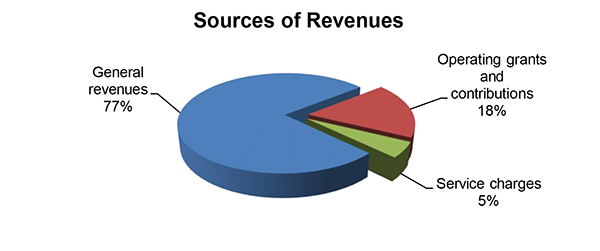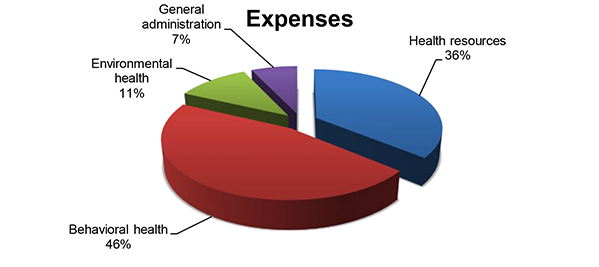Financial and Compliance Audit of the Department of Health
Posted on May 21, 2021 in Summary|
AUDITOR’S SUMMARY Financial and Compliance Audit of the Department of Health THE PRIMARY PURPOSE of the audit was to form an opinion on the fairness of the presentation of the financial statements for the Department of Health, as of and for the fiscal year ended June 30, 2020, and to comply with Title 2, U.S. Code of Federal Regulations, Part 200, Uniform Administrative Requirements, Cost Principles, and Audit Requirements for Federal Awards (Uniform Guidance), which established audit requirements for state and local governmental units that receive federal awards. The audit was conducted by KMH LLP. Financial Highlights FOR THE FISCAL YEAR ended June 30, 2020, DOH reported total revenues of $847.4 million and total expenses of $809 million, resulting in an increase in net position of $38.4 million. Revenues included $653.3 million from general revenues, $154.2 million from operating grants and contributions, and $39.9 million from service charges. Expenses included $291.6 million for health resources, $374.8 million for behavioral health, $92.2 million for environmental health, and $50.4 million for general administration. As of June 30, 2020, total assets and deferred outflows of resources exceeded total liabilities and deferred inflows of resources by $1.16 billion. Total assets and deferred outflows of resources of $1.32 billion included (1) cash of $518 million, (2) receivables of $28 million, (3) loans receivable of $661 million, (4) accrued interest and loan fees of $2 million, (5) deferred outflows of resources of $2 million, and (6) net capital assets of $109 million. Total liabilities and deferred inflows of resources totaled $158 million. DOH’s net position of $1.16 billion is comprised of a restricted amount of $845 million, of which $772 million is for loans; an unrestricted amount of $208 million; and net investment in capital assets of $109 million.
Auditors’ Opinion DOH RECEIVED AN UNMODIFIED OPINION that its financial statements were presented fairly, in all material respects, in accordance with generally accepted accounting principles. DOH received a qualified opinion on certain major programs over compliance with major federal programs in accordance with the Uniform Guidance. Findings THERE WAS ONE MATERIAL WEAKNESS and one significant deficiency in internal control over financial reporting that are required to be reported under Government Auditing Standards. The material weakness is described on pages 93-94 of the report, and the significant deficiency is described on pages 95-97 of the report. A material weakness is a deficiency, or a combination of deficiencies, in internal control such that there is a reasonable possibility that a material misstatement of the entity’s financial statements will not be prevented or detected and corrected on a timely basis. A significant deficiency is a deficiency, or a combination of deficiencies, in internal control that is less severe than a material weakness, yet important enough to merit attention by those charged with governance. There were three material weaknesses in internal control over compliance that are required to be reported in accordance with the Uniform Guidance. A material weakness in internal control over compliance is a deficiency, or a combination of deficiencies, in internal control over compliance, such that there is reasonable possibility that material noncompliance with a type of compliance requirement of a federal program will not be prevented or detected and corrected on a timely basis. The material weaknesses are described on pages 98-102 of the report. |
| About the Department
The mission of the Department of Health (DOH) is to protect and improve the health and environment for all people in Hawai‘i. DOH administers and oversees statewide personal health services, health promotion and disease prevention, mental health programs, monitoring of the environment, and the enforcement of environmental health laws. It administers federal grants to support the State’s health services and programs and is organized into four major administrations: Behavioral Health Services Administration, Health Resources Administration, Environmental Health Administration, and General Administration. |


